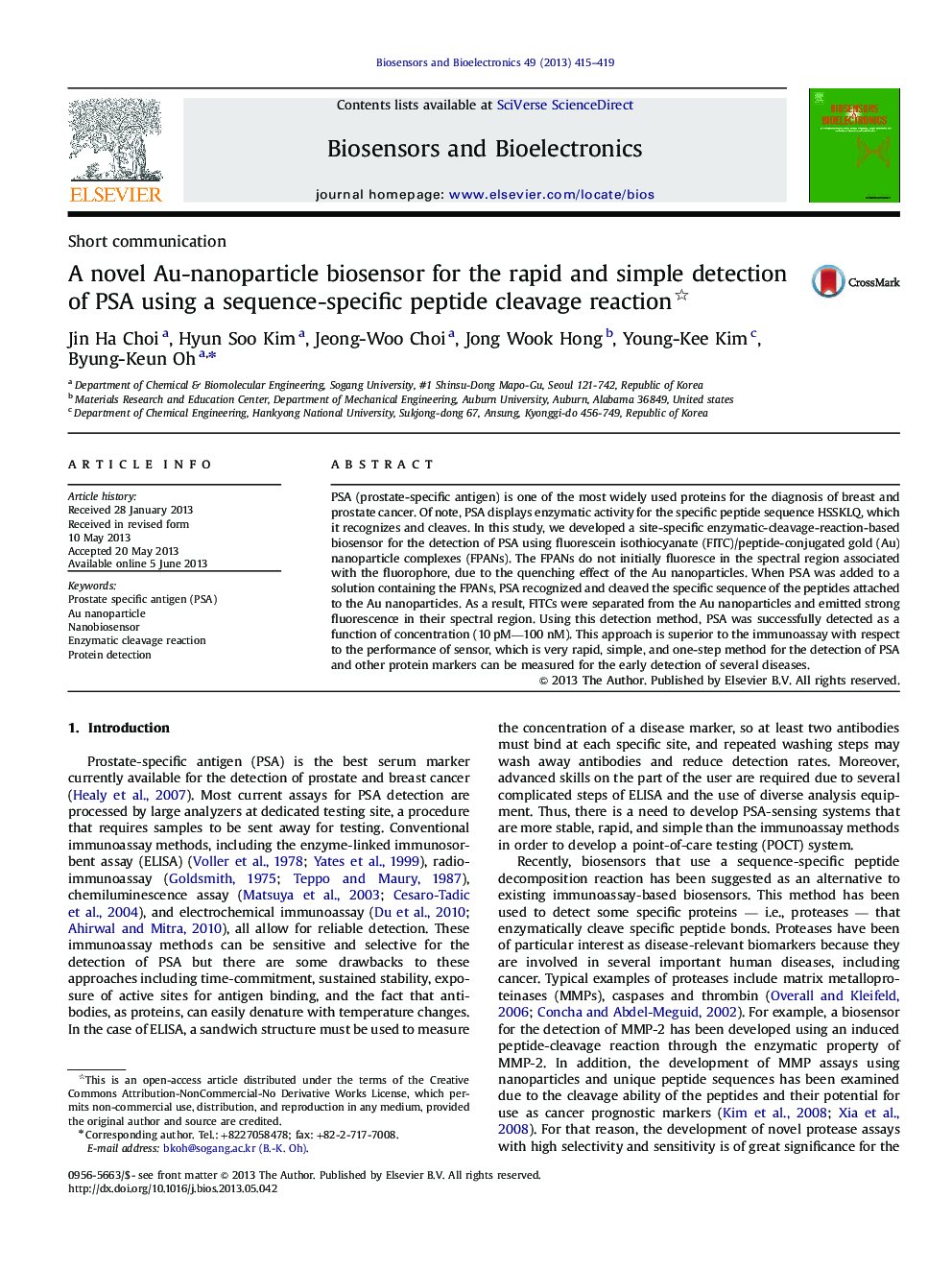| Article ID | Journal | Published Year | Pages | File Type |
|---|---|---|---|---|
| 7234224 | Biosensors and Bioelectronics | 2013 | 5 Pages |
Abstract
PSA (prostate-specific antigen) is one of the most widely used proteins for the diagnosis of breast and prostate cancer. Of note, PSA displays enzymatic activity for the specific peptide sequence HSSKLQ, which it recognizes and cleaves. In this study, we developed a site-specific enzymatic-cleavage-reaction-based biosensor for the detection of PSA using fluorescein isothiocyanate (FITC)/peptide-conjugated gold (Au) nanoparticle complexes (FPANs). The FPANs do not initially fluoresce in the spectral region associated with the fluorophore, due to the quenching effect of the Au nanoparticles. When PSA was added to a solution containing the FPANs, PSA recognized and cleaved the specific sequence of the peptides attached to the Au nanoparticles. As a result, FITCs were separated from the Au nanoparticles and emitted strong fluorescence in their spectral region. Using this detection method, PSA was successfully detected as a function of concentration (10Â pM-100Â nM). This approach is superior to the immunoassay with respect to the performance of sensor, which is very rapid, simple, and one-step method for the detection of PSA and other protein markers can be measured for the early detection of several diseases.
Related Topics
Physical Sciences and Engineering
Chemistry
Analytical Chemistry
Authors
Jin Ha Choi, Hyun Soo Kim, Jeong-Woo Choi, Jong Wook Hong, Young-Kee Kim, Byung-Keun Oh,
